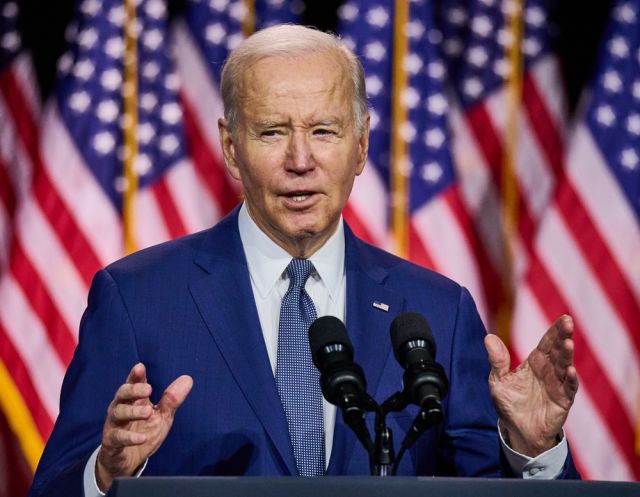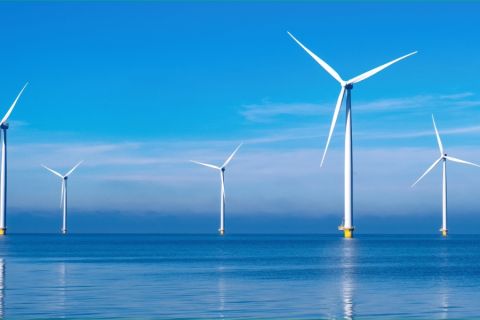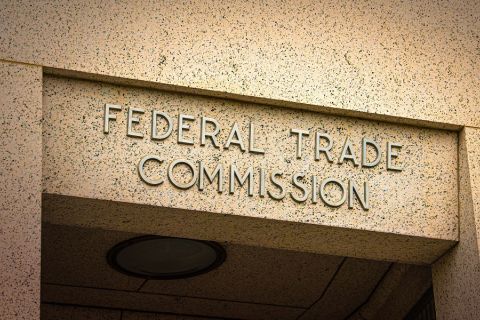
Supporters of Biden’s decision said a pause is necessary for a long-overdue update of the certification guidelines and that it will not harm LNG exports, which are already expected to more than double in capacity by 2027. (Source: Shutterstock)
At a House subcommittee hearing on Feb. 6, EQT CEO Toby Rice blasted the Biden administration’s January decision to pause certification of new LNG export terminals pending a review that will consider climate change as part of the process for approving new projects.
Rice, CEO of the largest U.S. natural gas production company, said his industry fears the White House is repeating the same tactics on LNG exports that have been used to interfere with pipeline construction.
“This is the playbook. It's delay and introduce uncertainty,” Rice said, referring to pipeline projects such as the Mountain Valley Pipeline, which have struggled with delays due to government regulations or lawsuits.
“And the playbook has been proven to be incredibly impactful and incredibly effective. Pipeline cancellations are probably one of the most destructive forces that are causing energy prices to be extremely erratic. And unfortunately, we’re starting to see the beginning of that playbook on the LNG industry.”
Supporters of Biden’s decision said a pause is necessary for a long-overdue update of the certification guidelines and that it will not harm LNG exports, which are already expected to more than double in capacity by 2027.
“The fact that our nation’s production has ramped up so quickly must be considered, especially since the U.S. has enough approved capacity to fulfill the world’s energy needs in the short and medium terms,” said Colorado Democrat Diana DeGette, the committee’s ranking member.
The three-hour hearing was organized through the Energy, Climate and Grid Security Subcommittee, which is under the House Committee on Energy and Commerce. In January, the White House ordered the Department of Energy to halt certification of LNG export deals to countries with which the U.S. does not have a free-trade agreement. The decision effectively halts the development of new LNG facilities, as the export agreements are necessary for terminal development.
Proponents of the pause said it’s necessary to consider the environmental and community effects of the terminals and would delay only six projects currently in development. They also charge that growing LNG exports could potentially raise energy costs for U.S. customers.
Opponents said the move would affect the entire energy industry, as potential customers would feel anxious about signing off on billions in long-term contracts at a time when the government is showing an interest in changing regulations. The move could also hurt trading partners in Europe, who may consider buying more gas from Russia or using coal.
“The confusion is going to cause people that have expected to receive energy security from the United States to look elsewhere, and it's a lost opportunity for us,” said subcommittee member Rep. Morgan Griffith (R-Virginia) “We're going to have to reassure our allies that we are here to help provide energy security, because your energy security is our energy security.”
The hearing was the first of two this week that will consider the new LNG policy.
The Senate Committee on Energy and Natural Resources will meet at 9:30 a.m. Feb. 8 to discuss the Biden administration’s decision. Witnesses include David Turk, deputy secretary for the Department of Energy; industry representatives Charlie Riedl, executive director of the Center for LNG; and Dr. James Watson, secretary general of Eurogas, an association of European energy companies.
Recommended Reading
Analyst: Exxon Mobil, Pioneer Deal Close Likely ‘Imminent’
2024-05-01 - With approval from the Federal Trade Commission, Exxon Mobil could close its $59.5 million acquisition of Pioneer Natural Resources after more than six months of review.
Oil, Gas Production Fee Set to Hit Colorado Producers
2024-05-01 - The deal reached this week will eliminate several proposed ballot measures targeting the fossil fuel industry ahead of this year's election, including one that would have halted drilling in summer months.
Guyana’s Stabroek Boosts Production as Chevron Watches, Waits
2024-04-25 - Chevron Corp.’s planned $53 billion acquisition of Hess Corp. could potentially close in 2025, but in the meantime, the California-based energy giant is in a “read only” mode as an Exxon Mobil-led consortium boosts Guyana production.
US Interior Department Releases Offshore Wind Lease Schedule
2024-04-24 - The U.S. Interior Department’s schedule includes up to a dozen lease sales through 2028 for offshore wind, compared to three for oil and gas lease sales through 2029.
Utah’s Ute Tribe Demands FTC Allow XCL-Altamont Deal
2024-04-24 - More than 90% of the Utah Ute tribe’s income is from energy development on its 4.5-million-acre reservation and the tribe says XCL Resources’ bid to buy Altamont Energy shouldn’t be blocked.




